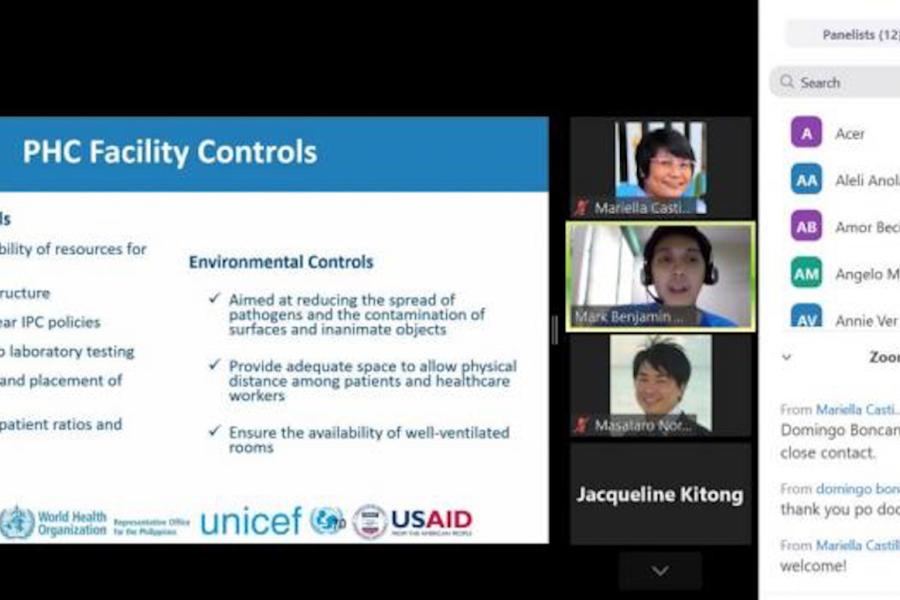UNICEF and Philippines Health Department train 2,500 health workers to help stop COVID-19 spread
15 April 2020
- UNICEF and Philippines Department of Health organize online and offline training of health workers on COVID-19 Infection Prevention and Control

MANILA, Philippines – UN children’s agency UNICEF and the Department of Health (DOH) began a virtual training of health workers on COVID-19 Infection Prevention and Control (IPC).
The training, aimed at COVID-19 interventions in home and community settings, was developed in collaboration with DOH, the World Health Organization (WHO) and USAID. The training will build the capacity of up to 2,500 health workers in Luzon, Visayas and Mindanao initially. To overcome travel restrictions during the enhanced community quarantine, and to facilitate rapid dissemination, the training is being delivered through a mix of online webinar and offline community platforms for those with limited or no internet access.
The training is consolidated from the Philippine Government, WHO and Centres for Diseases Control (CDC) guidelines. Upon completion of the training, participants will be able to understand the latest information on COVID-19; understand and describe why IPC is important in the context of preparedness, readiness, and response; understand the proper use of Personal Protective Equipment (PPE); describe and demonstrate IPC measures at home and in the community; and understand case definitions and management pathways.
“This excellent collaboration among partners combines scientific approaches and practical solutions to stop the spread of COVID-19 at home and in the community. Guiding us in the development of the training are epidemiologists, nutritionists, public health experts and other specialists who aim to not only stop COVID-19 but also to strengthen the Philippines’ health system in the long term,” UNICEF Philippines Chief of Health and Nutrition Programme Dr. Wigdan Madani says.
The training webinar has so far been an important resource and reliable source of information for communities. “Thank you for the informative presentation you have prepared and presented for us health workers,” comments Zina Gervacio, Sanitary Inspector from the Rural Health Unit of Bongabon, Nueva Ecija.
Apart from health workers, the training can also benefit Barangay Health Workers and Sanitary Inspectors, quarantine officers in the points of entry, border patrol personnel, military, police and barangay members of the COVID-19 task force, Barangay Health Emergency Response Team members, local chief executives such as Governors, Mayors, and Barangay Captains, as well as parents, caregivers and the general public. In particular, specific training modules on cleaning and disinfection protocols for different settings (healthcare facility, community/public spaces, and the home) aim to reach an additional 2,000 local government and health care facility staff. The training will be made available for the public to access through the social media channels of DOH and UNICEF Philippines.
UNICEF supports the Philippine Government in fighting COVID-19 through complementing the government’s response through technical assistance, provision of essential supplies and support for logistics and transportation, effective communication of safe practices to families, as well as ensuring that the rights of children and their families are protected.


